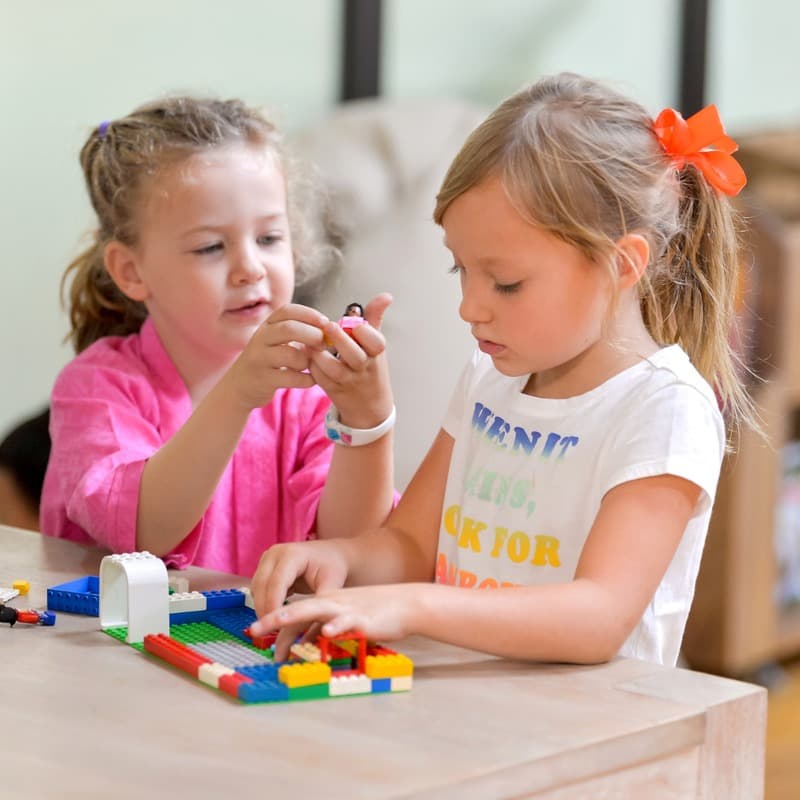JIS Elementary School students are encouraged to become critical, independent thinkers
The inquiry-based approach to education is widely adopted by schools across the globe for its focus on collaborative engagement, problem-solving and critical thinking. At Jakarta Intercultural School (JIS), the tried-and-tested methodology is further expanded to fit the changing needs of young learners from kindergarten to grade 5. The result is a defined and balanced elementary school program made up of purposeful, relevant yet challenging activities that reflect JIS’ mission of inspiring joyful and rigorous learning.
“Our JIS Elementary School program immerses children in an atmosphere of wonder, care, exploration and growth,”
said JIS head of school Dr Tarek Razik. “We encourage each child to reach their full potential within a challenging inquiry-approach curriculum based on research and high expectations.”
The inquiry method puts students at the centre of the learning process, which may start with a question, problem or scenario. These then serve as a prompt for students to ask their own questions, gain information through research, analyse that information, then derive meaning from it — which is in direct contrast to the traditional method of memorising or rote learning.
It is a particularly popular approach among international schools but is strengthened at JIS with JIS’ unique core values and the research and philosophies of Building Learning Power (BLP), Razik explained. BLP may not be as widely recognised to those outside the field of education, but it has been gaining traction for its work to “help students become better learners, both inside and outside the classroom.”
“It’s about creating a culture that cultivates positive habits and attitudes toward learning, enabling students to solve problems effectively, creatively and with confidence,” Razik said. “In particular, we use Building Learning Power to help children become resilient, resourceful, relating and reflective — dispositions that are at the core of our school values.”
All of these purposeful elements combine to create a comprehensive curriculum that is unique to JIS and has kept it at the forefront of international education in Indonesia. In addition to a strong emphasis on language arts and mathematics, JIS Elementary School remains balanced — “and fun” — by also providing opportunities in science and technology, social studies, modern languages, physical development, service, as well as visual and performing arts.
The program is diverse and inclusive and covers a wide range of interests, but each engaging activity, Razik underlined, is experiential and designed out of the foundations of inquiry learning.
“We believe an inquiry approach to all our learning opportunities, both academic and non-academic, best meets the needs of young learners. By fostering their intellectual, social, physical and emotional development, our goal is for JIS students to become competent learners and productive, caring members of their community — thinkers, creators, feelers, problem solvers and doers.”
Learning for JIS Elementary School students takes place on one of two spacious campuses located in South Jakarta, namely Pondok Indah (PIE) and Pattimura (PEL). They are also home to JIS’ Early Years (EY) program for children aged 3 to 5, where inquiry meets play-based learning that is hands-on and very active.
JIS understands that children learn by doing, by being active and involved in their environment. According to JIS Early Years teacher Lisa Mandeville, however, learning through play is still widely misunderstood and underestimated. She emphasised that play works to stimulate all areas of development that are crucial and particularly sensitive during early childhood.
“There’s a lot of important development that happens during the early years. [Through play-based learning at JIS], we try to provide children with a safe and engaging environment so we can develop the whole child,” Mandeville said during a JIS Podcast discussion on “Joyful Learning at JIS Early Years”.
“We’re looking at developing social-emotional [skills] for them to be part of a learning community and teach them how to get along [with others].”
She went on to list physical development (fine and gross motor skills), independence, language, as well as early reading and writing as more crucial developmental domains that are nurtured through play.
“Also, cognitive skills, mathematical thinking, problem-solving — there’s so much! There are so many things that we’re helping the child develop because we believe that children are very competent and capable learners.”
For that reason, she added, JIS EY students have a lot of voice and a lot of choice in their experiences in school, which in turn nurtures their curiosity and builds a love for learning.
As part of the new academic year, they will also have more opportunities to learn through inquiry and play as part of JIS EY’s extended program. The new full-day schedule, which will run from 7:30am to 2pm, was purposefully designed to include exploratory activities, interactive games and read-aloud stories.
“Early childhood education provides the groundwork for lifelong learning, and we’re excited to provide more opportunities for our youngest learners to learn, grow, explore and have fun at JIS,” Razik said




